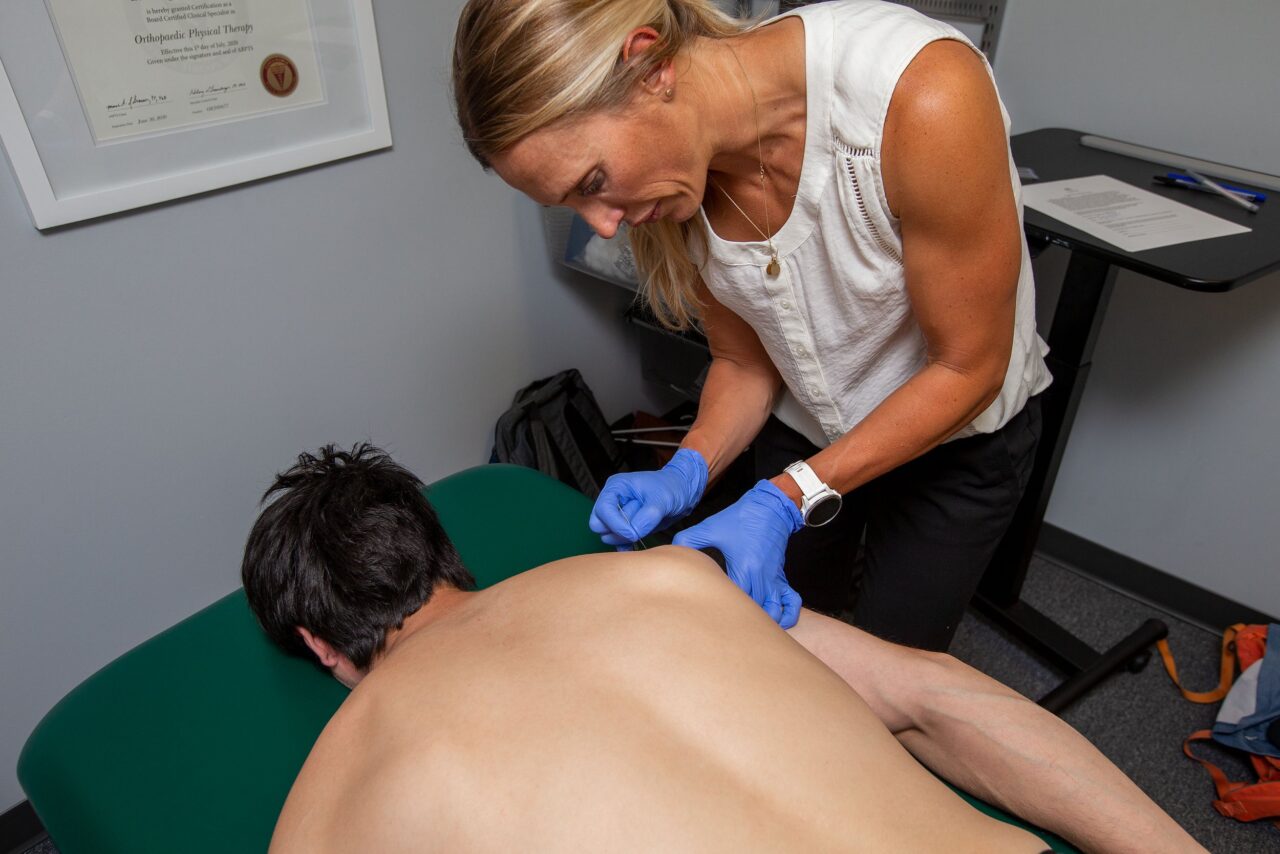Shoulder pain is a common problem among rock climbers. It affects 2/3 of adults and is one of the top three reasons patients will seek care from a primary care physician or Physical Therapist. The most probable reason for shoulder pain remains rotator cuff pain including impingement, rotator cuff tendon pain, and rotator cuff tears. Research studies on MRI imaging of the shoulder demonstrates high incidences of rotator cuff pathology (tendinopathy and tears) in both painful and painfree rock climbers. This lack of specificity requires clinicians to interpret these findings with the patient’s clinical examination to ensure proper treatment allocation including Physical Therapy or surgery.
Prior research into the recovery of patients with rotator cuff tears has found equivalent long term outcomes between surgery and Physical Therapy treatments. Interestingly, these results have held up with larger full thickness tears and traumatic tears. Clearly not all patients with rotator cuff tears on MRI require surgery. Instead other factors including initial levels of disability including an inability to raise their arm, lack of involvement in daily, occupational, and recreational activities, as well as, a lower expectation for recovery from Physical Therapy have been shown to be more predictive of success with surgery. A recent study looked into short and long term outcomes for rotator cuff tears and their relative recoveries over time.
Song and colleagues published a cohort, non randomized, study of close to 170 patients with symptomatic partial or full thickness rotator cuff tears (J Bone Joint Surg. 2020). Patients were provided either 6-12 weeks of non operative treatment including Physical Therapy consisting of rotator cuff and scapular strengthening or arthroscopic shoulder surgery. Consistent with prior research significant improvements in outcome measures were found at long term follow ups regardless of group selection with a greater than 80% probability of success at 5 years in either the surgical or Physical Therapy group.
Authors reported a faster recovery in the Physical Therapy group at 3 months compared to the surgical group, but results were improved at long term follow ups (6-12 months) for the patients treated surgically. Those who reported the greatest improvements in outcomes after surgery included those with greater expectations of recovery. In other words, consistent with prior research those with highest levels of disability had the most to gain from the surgical intervention. Patients with rotator cuff tears are advised to work with a Physical Therapist for 6-12 weeks including a gradual return to rock climbing. This can help determine the level of recovery found with conservative treatments before considering surgical interventions.
If you’re experiencing shoulder pain, schedule an appointment with a rock climbing specialist at Mend. We have locations in Boulder and Lafayette, Colorado. Many physicians, surgeons, and physical therapists do not understand the sport of rock climbing and may give incorrect or ill-advised advice on whether or not to return to climbing. The rock climbing specialists and Mend understand the sport and know when and how to safely return to rock climbing.

